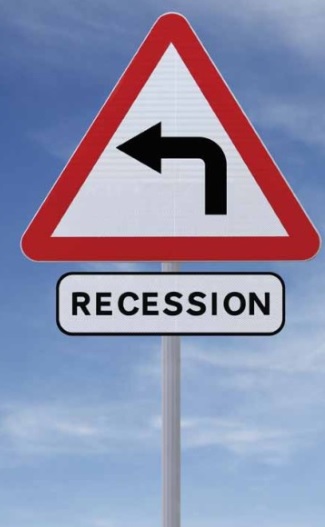A recession is defined as two consecutive quarters of negative growth of the country’s GDP. Recessions affect the stock market as it impacts the ability of individuals to invest in the market. It also affects the ability for companies to generate growth. These are the main causes that can help lead to a recession.
Interest rate rises
When interest rates are raised, consumers have less money to spend as the result of higher interest repayments. Consumers are also more likely to save their cash when they see rates start to increase. In high interest environments, rates are higher and saving account interest rates are higher which encourages consumers to save more and spend less which slows down the economy. Higher interest rates will impact business as the cost to borrow becomes higher. Businesses are therefore less likely to take out loans and grow their business. This slow growth can eventually lead to a recession.
Inflation
Higher oil and gas prices can cause inflation as it affects input costs. Inflation is caused when the cost of living becomes more expensive and the purchasing power of consumers is diminished. When this occurs, households consume less which drives demand for goods and services down. This lack of demand affects companies as this decrease in consumption then causes companies to produce less. If this decrease in consumption is prolonged then it can cause a recession.
Falling Asset Prices
Falling asset prices causes a negative wealth affect on individuals. This in turn leads to reduced consumption. A stock market crash or a housing crash can cause a recession as it can also create poor confidence in the market. When the home values fall, home owners lose equity. This loss of equity can curb their spending. If interest rates are too high, it may cause a mass of foreclosures which will further drive down the market price of homes and further decreasing the wealth of individuals.
A fall in the stock market can also help cause a recession. The stock market crash in the US in 1929 was caused by many investors buying shares on margin loans. When share prices started to decline, many investors had to sell out. Since the value of the shares had dropped significantly, people were unable to pay off their loans. This then lead to bank failures. Confidence in the economy was eroded and consumers reduced their spending, which lead to a recession.
Appreciation of Exchange Rates
A stronger currency means exports become less competitive. It then leads to a greater demand for imports because of the increased strength of the currency. This decrease in demand for exports reduces the levels of local production. This in turn has a negative effect on GDP, which can help lead to a recession.
Tightening of Fiscal Policy
A recession can be caused by a tightening of fiscal policy. A tightening in fiscal policy can lead to increasing taxes. This reduces the purchasing power of consumers which leads to a reduction of consumer demand.
Lauren Hua is a private client adviser at Fairmont Equities.
An 8-week FREE TRIAL to The Dynamic Investor can be found HERE.
Would you like us to call you when we have a great idea? Check out our services.
Disclaimer: The information in this article is general advice only. Read our full disclaimer HERE.
Like this article? Share it now on Facebook and Twitter!

